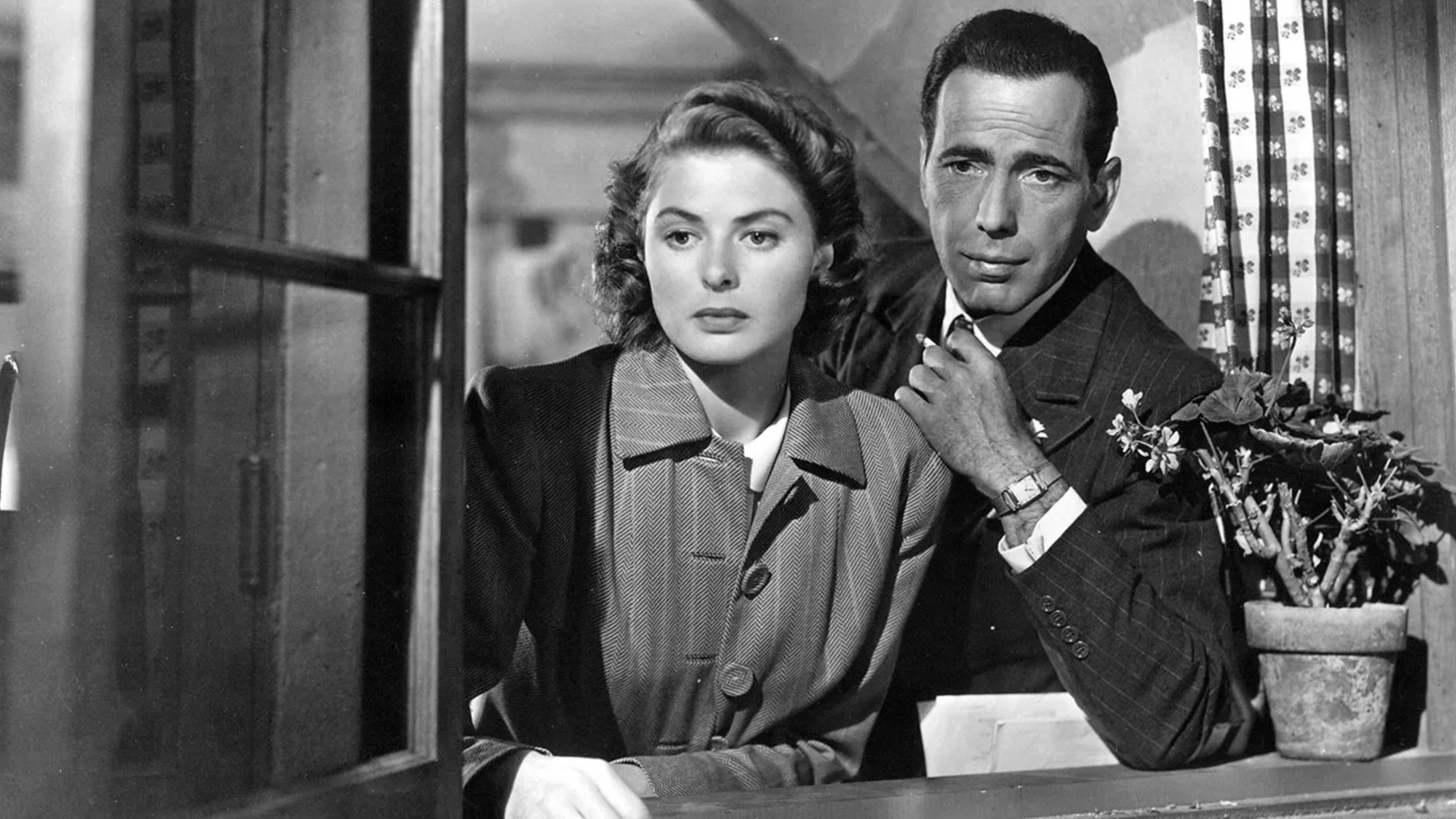Casablanca: Duty & Love in Wartime
Casablanca is not just a Hollywood classic; it is a profound reflection of its time, capturing the uncertainty and turbulence of World War II. Released in 1942, as the war raged on, the film resonated deeply with audiences facing a world in flux. Set in the Moroccan city of Casablanca, then a crucial hub for refugees fleeing Nazi-occupied Europe, the film portrays the complexities of love, duty, and moral ambiguity amidst the chaos of war. At its heart, Casablanca tells a deeply human story of lost love rekindled under impossible circumstances. The film’s famous dialogue, filled with sharp wit and emotional weight, remains iconic—lines like “Here’s looking at you, kid” and “We’ll always have Paris” have become part of the cultural lexicon.
The storytelling structure follows a classic Hollywood three-act form but surprises with its emotional depth and moral complexity. Humphrey Bogart’s portrayal of Rick Blaine, a cynical American expatriate who must choose between love and a higher cause, encapsulates the internal struggles of a world at war. Ingrid Bergman’s Ilsa Lund represents both personal longing and the larger sacrifices demanded by the war effort.
Casablanca was made at a time when the outcome of World War II was uncertain, and its themes of resistance and loyalty struck a powerful chord. The characters' dilemmas reflect real geopolitical concerns, with Casablanca serving as a metaphor for a world caught in limbo—waiting, surviving, and searching for escape.
Director Michael Curtiz’s fluid camera work and deep focus cinematography lend a sense of immediacy to the film, capturing the tension and romance within Rick’s Café Américain. The use of lighting, especially in the shadowy interiors, adds to the noir aesthetic, reinforcing themes of secrecy and longing. Max Steiner’s sweeping score, incorporating “As Time Goes By,” provides a hauntingly beautiful musical anchor that underscores the film’s emotional core.
Notice how Casablanca, as a setting, serves as both a literal and metaphorical place of exile, mirroring the characters’ emotional journeys and how Rick’s transformation unfolds through subtle changes in dialogue and body language. As you watch, reflect on the timeless relevance of Casablanca’s themes—love versus duty, personal sacrifice for a greater cause, and the eternal struggle for freedom.
Tickets
